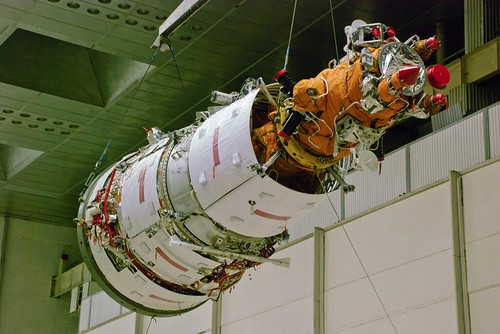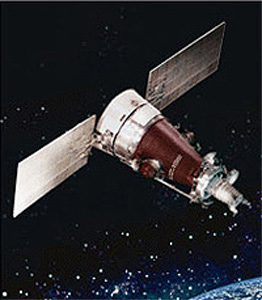Russian Lie of the Week: That Wasn’t Our Spy Satellite
Tuesday, September 23rd, 2014“One can only guess about the condition representatives of the so-called American Meteor Society were in when they identified a luminescent phenomenon high up in the sky as a Russian military satellite,” said the spokesman, Igor Konashenkov.
NBC News reported a fireball over Colorado was actually a Russian spy satellite (Kosmos 2495, a Kobalt-M spacecraft) used for reconnaissance.
Russian propaganda is speculating it was actually a threatening “flying Nazi wing” or something and the Kosmos 2495 did some counter-measures and shot the bitch down with a laser beam.

The technology is astounding: it weighs 6,700 kg, uses film to record images, then sends canisters back by dropping them somewhere over Russian territory. This particular one was launch in May, so it coincides with its end-of-life. However, instead of burning up upon re-entry over Orenburg, Russia, parts or all of it burned up over Colorado. Just another case of “Russian precision?” Yeah, right.
Anatoly Zak presented a balanced account of what may have happened:
According to a space flight historian Jonathan McDowell, Kosmos-2495 was deorbited on Sept. 2, 2014, and its descent module landed around 18:18 GMT after a 119-day mission. The reentry was confirmed by a likely sighting of the spacecraft over Kazakhstan, not far from the border with the Russian region of Orenburg, where Russian military satellites would normally land. However a yet another reentry was observed by multiple witnesses the following evening over the western United States. According to McDowell, the ground track of the mysterious object over the US closely matched that of Kosmos-2495, if only the satellite or its fragment was able to make additional six revolutions around the Earth after its projected landing in Russia and then reenter over the US state of Colorado around 04:33 GMT on September 3.
The sightings over the US could be explained by an aborted firing of the braking engine onboard the spacecraft that caused one of its parts, such as the descent module, to reenter over Russia, while another part, such as the service module to stay in orbit for several hours and then make an uncontrolled plunge into the atmosphere over the US due to air friction, McDowell said.
 It shouldn’t come as a surprise the Russian military is using space technology first used in the early 1980’s, with alleged 0.3m resolution, however.
It shouldn’t come as a surprise the Russian military is using space technology first used in the early 1980’s, with alleged 0.3m resolution, however.
Putin’s Russia is run by criminals, drunks and KGB-bred barbarians who have no regard for human life or for telling the truth.
Here’s a more-recent follow-up from the Daily Camera in Boulder:
Witnesses across the Front Range and in several neighboring states reported the object streaking across the sky and breaking into several pieces around 10:30 p.m. on Sept. 2.
While some initially speculated it was a meteor, a meteor would have burned too quickly to be seen over such a vast area, said Mike Hankey, the American Meteor Society’s operations manager.
He added that fragments from the object were even big enough to show up as a weather event on radar just east of Cheyenne, Wyo.
The object probably was a piece of Russia’s Cosmos 2495 reconnaissance satellite, launched in May, said Charles Vick, an aerospace analyst with military information website Globalsecurity.org.
Cosmos 2495 was designed to shoot reconnaissance photos and send the film back to Earth in capsules.
It delivered film to Russia as intended, but some pieces of the craft remained in orbit until falling over the Rockies, Vick said.
The U.S. Strategic Command, responsible for American nuclear warfighting forces, confirmed that Cosmos 2495 re-entered the atmosphere and was removed from the U.S. satellite catalog Sept. 3.
Jonathan McDowell, an astronomer with the Harvard-Smithsonian Center for Astrophysics, estimates that there are 98 operating spy satellites in orbit, launched by at least six nations.
Of those, 37 are from the United States, 30 from China and just three from Russia, he said. Many of those satellites are old, and probably half are in full operation, McDowell said.
A Russian Defense Ministry spokesman told the ITAR-TASS news agency Sept. 9 their military satellites were operating normally,